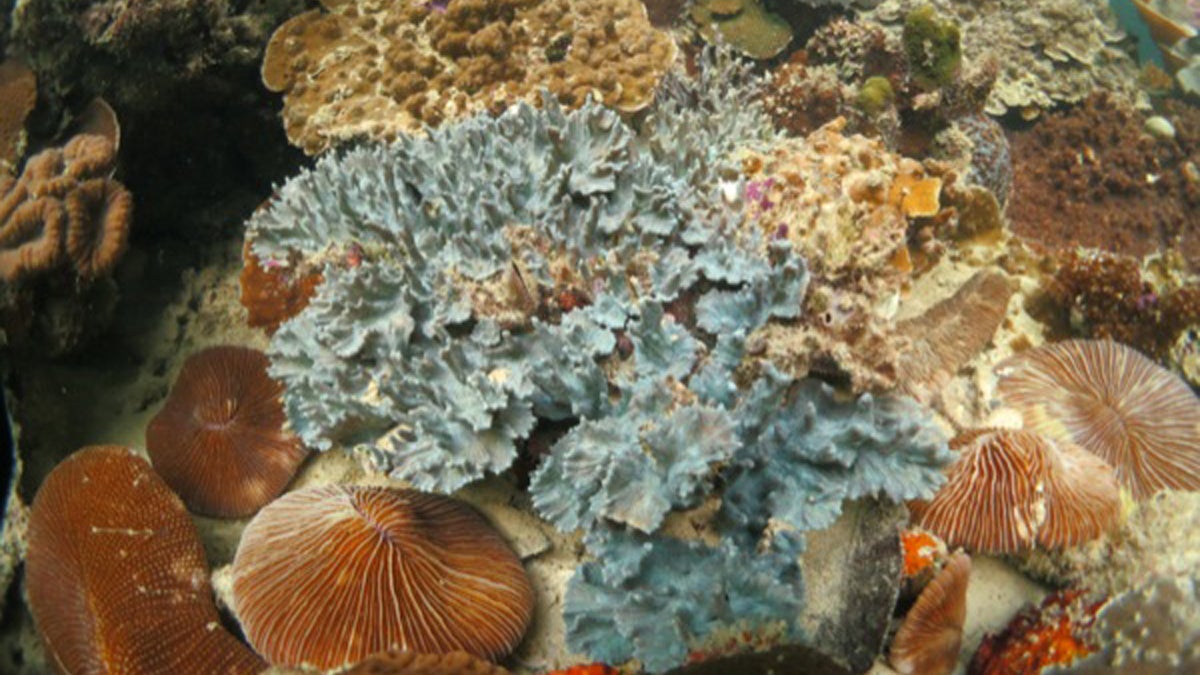Invasive algae could stunt growth of Caribbean corals, University of Delaware scientist finds

An underwater look at Nikko Bay, Palau, where many corals associated with S. trenchii, a stress-tolerant zooxanthellae alga found in coral communities across the Greater Caribbean. (Photo by Allison Lewis)
Algae from the Indian and Pacific oceans now has a foothold in the Caribbean — and local scientists are finding it might cause more trouble than previously thought.
University of Delaware biologist Tye Pettay said that the species, Symbiodinium trenchii, is best known for its ability to allow corals to grow in water several degrees higher than usual.
“At face value, the finding of this species in the Caribbean is a good thing,” he said, “and historically has kind of been touted as a savior for reefs because of its thermal tolerance.”
But in work published this week in the journal PNAS, Pettay and his colleagues found that the algae also hamper coral growth, in some cases by as much as 50 percent.
Algae make the food corals consume, and, in turn, the animals build the calcium carbonate skeletal structure algae call home. It’s a great partnership — except when the duo hasn’t had millions of years to evolve together.
That might be the case for S. trenchii in the Caribbean, Pettay said. Through genetic analysis, his team determined that the species is a relative newcomer from Indo-Pacific waters, where it doesn’t appear to have any negative effect on coral, and has far more genetic diversity.
It’s not yet clear how the pros and cons of the invasive algae will balance out, but poor growth is worrisome beyond just the corals alone. Reefs are key ecosystems that harbor a quarter of all marine species at some point in their life cycle, despite taking up only 1 percent of the ocean floor.
More research is needed, Pettay said, to understand the magnitude of the problem. But now that the species has made it to the Caribbean, one thing is for sure: The transplant is there to stay.
WHYY is your source for fact-based, in-depth journalism and information. As a nonprofit organization, we rely on financial support from readers like you. Please give today.

